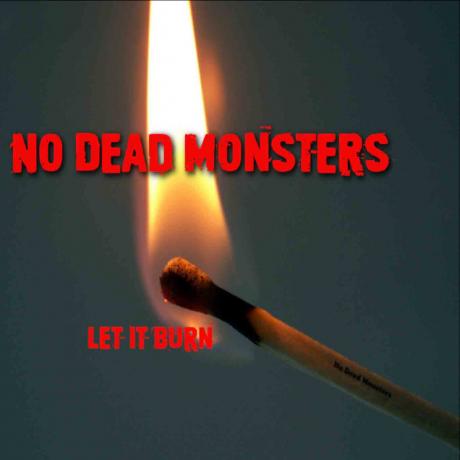When it comes to childhood trauma, your brain may repress memories as a coping mechanism. Throughout adulthood, you might feel something is not right and not know why. This article discusses signs and symptoms that indicate you may have repressed memories from childhood trauma. It also reviews other possible reasons for these emotions or behaviors and ways to cope.
PixelsEffect / Getty Images
Trauma and Memory
Your brain processes and stores memories. Over time it decides which to keep, delete, suppress, or repress. Stress and fear can cause your brain to vividly remember events to protect you later in life. However, the brain can also repress or push traumatic memories aside, allowing a person to cope and move forward.
Memory Wars
There is a long-standing debate about the validity of memory repression. A review of research shows that this controversy, which is sometimes referred to as the “memory wars,” is still controversial in the scientific community today. Most researchers today believe that it is rare to completely forget trauma that occurred after early childhood and that "recovered memories" are not always accurate.1
All About the Different Types of Amnesia
Causes of Childhood Trauma
Traumas experienced as a child are also called adverse childhood experiences (ACEs). ACEs may leave emotional scars that can cause repressed emotions to emerge as an adult.
ACEs
Some ACEs include:
- Verbal, physical, or sexual abuse
- Neglect
- Alcoholic parents
- Mental illness of family members
- Abandonment of a parent (divorce, death, or prison)
- Severe childhood illness
- Learning disabilities
- Extreme bullying
- Refugee trauma
- Natural disasters
Almost half of the children in the United States are exposed to at least one ACE throughout their lives.2
Signs and Symptoms
The following signs may be ways that the emotional impact of childhood trauma can present. These symptoms may occur or worsen during stressful times.34
- Strong reactions: Strong reactions can often catch you off guard. You might feel unsafe around a person you just met because the person reminds you of someone involved in your childhood trauma.
- Anxiety: Childhood trauma increases the risk of anxiety. Anxiety triggers a reaction where adrenaline courses through the body, telling it to fight or leave a situation. Your heart rate increases, and you may feel sick to your stomach.
- Childish reactions: Childish reactions may look like a tantrum. You speak in a childlike voice, show stubbornness, and have outbursts that are difficult for you to control.
- Inability to cope with change: Stress is normal when you are pushed out of your comfort zone. It becomes concerning when change triggers persistent extreme emotionsthat interfere with daily life or relationships.5
- Intense mood swings: Trauma survivors might either feel numb or have overwhelming emotions. Some find it difficult to identify why they feel irritable, stressed, or angered.
- Certain places make you uncomfortable: Certain smells, noises, environments, sights, or other sensations may cause discomfort. For example, if an ACE occurred in an elevator, other similar small spaces may cause anxiety or panic.
- Low self-esteem: Low self-esteem can be hard to identify but becomes apparent through fears of being judged, people-pleasing, not setting boundaries, or lack of self-worth. Frustration, social anxiety, and distrust can also occur with low self-esteem.
- Chronic pain or illnesses: Some studies show that people with early childhood trauma may be susceptible to developing chronic painor illnesses later in life.
- Abandonment issues: In many cases, the very people who should be caring for a child hurt them. This can lead to an alteration in the development of trust that leads to an intense fear of abandonment.
Abandonment issues may result in the following behaviors that may affect the quality of your relationships:6
- Quickly getting attached
- Lack of commitment or trying not to get attached
- Staying in unhealthy relationships
- Distrust
- Feeling insecure
- Intense suspicion or jealousy
- Separation anxiety
- Overthinking
- Hypersensitive to criticism
- Self-blame
Fear of Abandonment Example
Abandonment issues may leave you feeling like you are overreacting to someone important leaving for short periods. For example, you may feel anxious when your partner goes out to dinner with friends for the evening.
How to Cope With Childhood Trauma
Recognizing your emotions is a great first step to start the healing process. Finding a licensed mental health professional who provides a supportive environment is one of the best things you can do to help better understand yourself.
The following are types of therapy that can help with the impact of childhood trauma.
- Behavioral therapy: Behavioral therapy gives you a safe place to process emotions or experiences to decrease their negative effect on your life. The goal is to help you identify and correct destructive thoughts and behaviors that stem from trauma rather than just automatically playing them out.4
Benefits of Behavioral Therapy
Behavioral therapy can provide tools to help you with:7
- Relaxation
- Trust
- Regulating difficult emotions
- Coping strategies
- Problem-solving
- Exposure therapy: Exposure therapy is a type of behavioral therapy that helps a person confront their fears. It sometimes includes a technique called desensitization. This is where someone is progressively exposed to increasingly fearful situations along with learning ways to replace fear with relaxation.8
- Cognitive processing therapy: Cognitive processing therapy (CPT) is a specific behavioral therapy that helps you restructure beliefs related to the trauma. CPT can be done individually or in structured group therapy.9
Coping Strategies Outside of Therapy
While undergoing treatment, you can also attend support groups, practice mindfulness, journal, and learn coping strategies through self-help books and podcasts.
Other Reasons for Repressed Memory
Other psychiatric reasons for memory issues include:
- Dissociation: Dissociation means disconnection from yourself, others, and the world. This is the brain’s short-term way of escaping pain. Long-term dissociation can separate a person from reality or cause them to lose memories of entire chunks of time, called dissociative amnesia.10
What Is Dissociative Amnesia?
An inability to recall information related to personal traumas is sometimes called dissociative amnesia. Dissociative memory loss can affect a specific part of a person’s life or significant parts of a person’s identity.11
- Denial: Denial is a psychological defense mechanism in which there is a refusal to recognize or acknowledge something painful. While denial is helpful when coping with traumatic events in the short term, ongoing denial can cause emotional, mental, or physical health problems.
Childhood Trauma's Association With Dementia
Evidence suggests an association between childhood trauma and a higher risk of dementia. While trauma may not cause dementia, it can aggravate symptoms such as memory loss.12
- Dissociative identity disorder (DID): DID is a mental health condition where a person has multiple, distinct personalities. It can cause memory loss while one or the other identity controls the person’s behavior.13
- Borderline personality disorder (BPD): BPD is a mental health illness characterized by mood dysregulation and unstable relationships.
BPD Symptoms
While this is not a comprehensive list, symptoms of BPD include:14
- Dissociation
- Extreme emotions
- Distrust
- Distorted self-image
- Chronic empty feeling
- Reckless behaviors
- Self-harming
- Suicidal ideations
The Meaning of Escapism in Psychology
Summary
Childhood trauma can cause a variety of emotional problems in adulthood. When you experience childhood trauma, your brain may repress details of the memories or the emotions associated with them as a coping mechanism.
It’s best to seek treatment from a licensed mental health professional such as a psychiatrist or psychologist so they can help you identify your emotions and patterns of behavior.
A Word From Verywell
Understanding what is going on with your emotions is the first step in healing. It’s always best to seek treatment with a trained mental health professionalif you are struggling with the impact of childhood trauma. They can help you work through your feelings, form better relationships, and enjoy a fulfilling life.







Comments